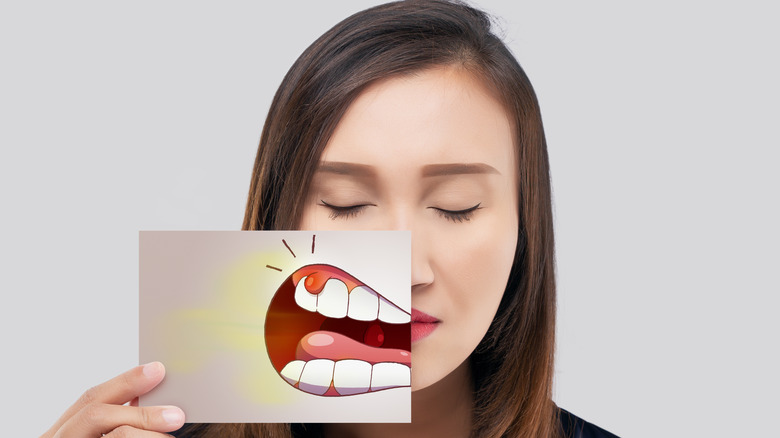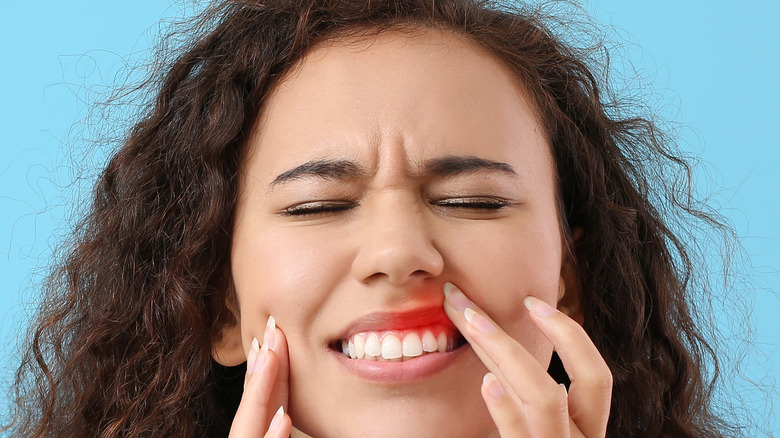If You Have Swollen Gums, It Could Be A Sign Of This
When it comes to dental hygiene, it's just as vital to protect your gums as it is to protect your teeth. Swollen gums are a painful dental issue that may interfere with your routine habits, such as eating, drinking, brushing teeth, etc. Per WebMD, problems with gums — particularly bleeding and swelling — are often early signs of gum diseases. Luckily, there are several techniques and tips you can practice to reduce the pain and discomfort caused by gum swelling.
One of the best ways to stay on top of your dental hygiene is by visiting a dentist periodically for a mouth check-up (via MedicalNewsToday). They can help identify symptoms and sources of inflammation that may lead to gum diseases or infections in the future. If you have severe gum inflammation and swelling, a dentist may prescribe you medicated or non-medicated ointments, toothpaste, and mouthwashes to tackle the pain, according to MedicalNewsToday.
What causes swollen gums?
Gum swelling may result from something simple, such as food getting stuck between the teeth or improper brushing technique (via MedicalNewsToday). Other times, it can be because of a critical disease. According to the Mayo Clinic, one of the common causes of swollen gums is gingivitis, a periodontal disease that leads to inflamed gums and redness, attacking the area right around the teeth. If not treated on time, gingivitis can worsen and result in teeth loss or periodontitis. According to the Mayo Clinic, you can prevent gingivitis by practicing good oral hygiene, such as brushing your teeth daily and going for dental check-ups every few months.
Healthline also states that swollen gums could be a sign of internal infections. For instance, people with herpes or oral thrush may experience gum inflammation and swelling. To avoid dental decay, treating the infection immediately is important to finish it from the roots. In addition, Crest explains that you may notice inflamed and swollen gums if you have some type of hormonal imbalance, use braces, or a reaction to drug therapy (such as chemotherapy).


